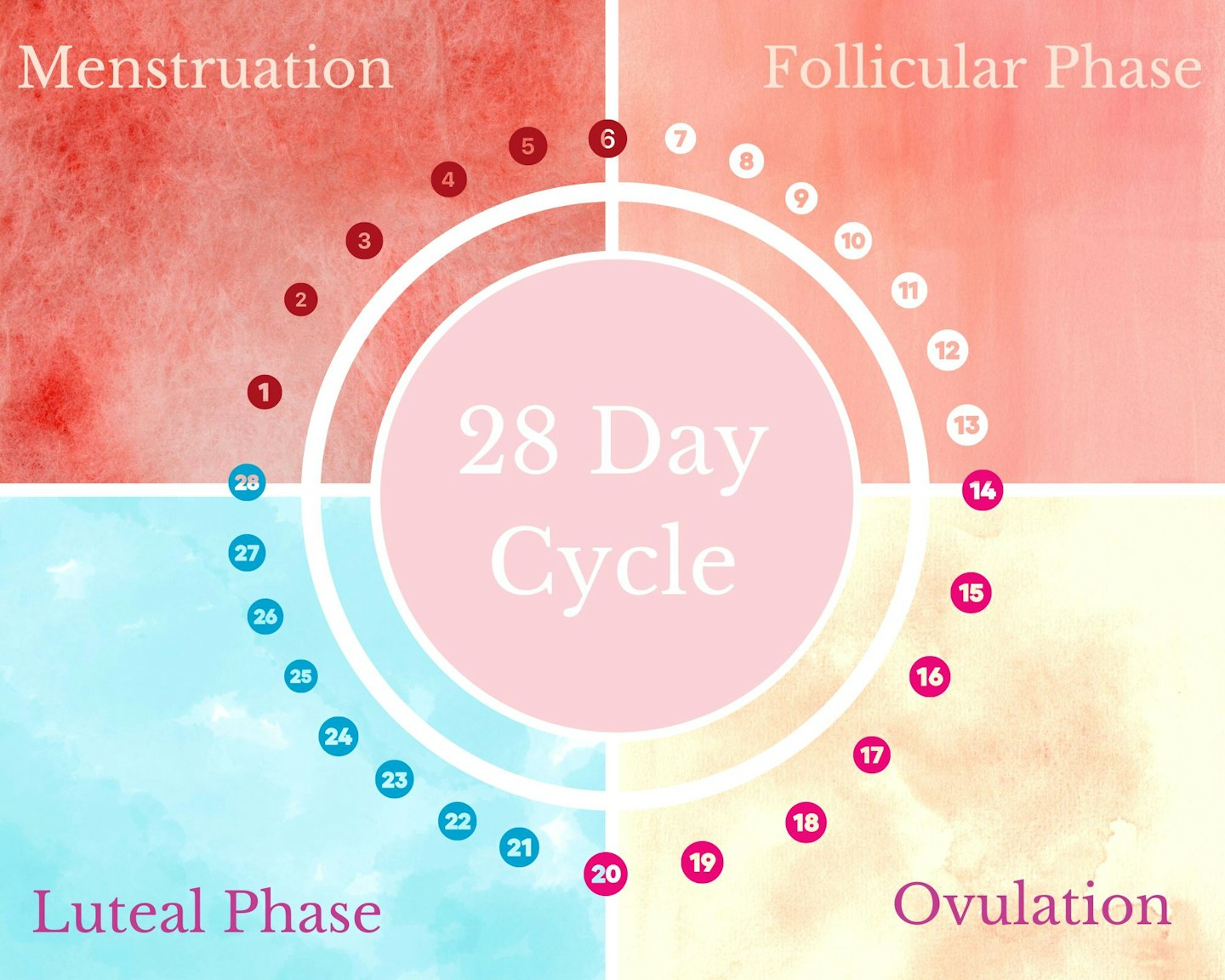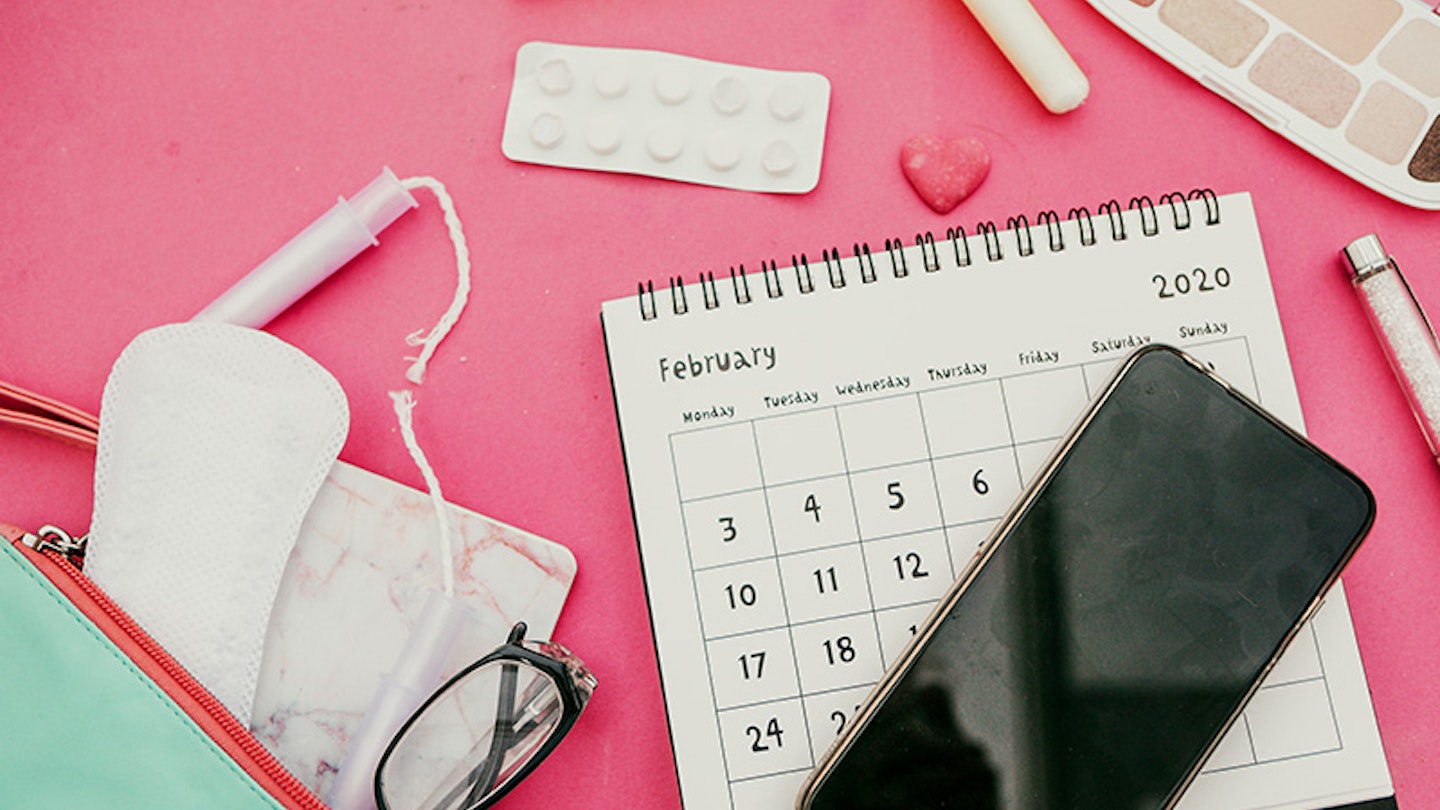You’ve welcomed your beautiful baby into the world, slowly adjusting to the whirlwind of newborn life and parenthood. And now, just as things start to feel a little more familiar, a new question arises: when will my period return? It’s one of those things many of us don’t think about straight away, but it often catches mums off guard when it finally shows up.
After months without a cycle during pregnancy, it’s natural to think about how your body resets. Some women find their periods return just a few weeks after giving birth, while for others, especially those breastfeeding, it might be months.
Whether your cycle comes back early or not, here’s what you need to know about postnatal periods, and ovulation.
How many days after your period can you get pregnant?
"Women who have a regular, 28-day cycle are likely to be fertile around day 14 of their menstrual cycle, but this won't apply to women whose cycles are shorter or longer", says the NHS.
"It’s possible (although not very likely) to get pregnant soon after your period finishes if you ovulate early or have a short menstrual cycle.",
If you're trying to get pregnant, it's important to have a good understanding of your cycle so you know the best times to get pregnant. You may be wondering can you get pregnant on your period or if it's more likely before or after menstruation.
Staying informed is your best bet to answering these questions and controlling what happens to your body, whether you want to get pregnant or you don't.
What are the four stages of your cycle?
Part of knowing when you can get pregnant is knowing your cycle. The average woman has a 28-day cycle, which is split into four specific stages that you may notice yourself going through every month.

• Menstruation - Lasting 3-7 days on average, this is when you'll have your period AKA when the thickened lining of a uterus sheds after a mature egg hasn't been fertilised.
• Follicular Phase - Overlapping with menstruation, this is when your hormones produce follicles, which house immature eggs before just one matures.
• Ovulation - This is when you're the most fertile and most likely to get pregnant, with your mature egg is passing through the fallopian tube and toward the uterus.
• Luteal Phase - You have no ovulated and the follicle that contains the egg will now produce progesterone and oestrogen, causing the most hormonal change in your cycle.
When is the best day in your cycle to get pregnant?
The best day to get pregnant is your ovulation day, but you still have a high chance of getting pregnant in the days leading up to ovulation. To work out when you're ovulating, you can use our ovulation calculator or a trusted app on your phone.
An egg is released from your ovaries, usually 12 to 14 days before your next period starts, and this is the time of the month when you're most likely to get pregnant. Again, tracking your cycle can be really helpful and answer other questions like 'can you get pregnant after ovulation?' or 'when is my period most likely to come?'
When are you most fertile after your period?
"Theoretically, there's only a short time when women can get pregnant, and that is the time around ovulation. It's difficult to pinpoint exactly when ovulation happens, but in most women it happens around 10 to 16 days before the next period. Women who have a regular, 28-day cycle are likely to be fertile around day 14 of their menstrual cycle, but this won't apply to women whose cycles are shorter or longer. It’s possible (although not very likely) to get pregnant soon after your period finishes if you ovulate early or have a short menstrual cycle.", says the NHS.
Can you get pregnant right after your period?
Although it's unlikely that you'll get pregnant in the days after your period has finished, it can happen. Remember that sperm can survive in the cervix for up to 7 days after you have had sex.
For example, if your period usually lasts for 5 days, you may only have 2-3 days after your period ends, before your fertile days begin. If you're trying to conceive (ttc), it might be best to wait a few days after your period ends to start baby making.
How long after period is ovulation?
It's difficult to pinpoint exactly when ovulation happens, but in most women it happens around 10 to 16 days before the next period. Women who have a regular, 28-day cycle are likely to be fertile around day 14 of their menstrual cycle, but this won't apply to women whose cycles are shorter or longer.
What are the signs of ovulation?
If you feel like your cycle is off, or you're looking out for the signs of ovulation, there are a few symptoms to pay attention to. You may have some cramps that aren't period-related, or you may feel bloated.
You may also have some breast tenderness or changes in cervical mucus and saliva, plus you may even feel slightly hotter that usual as your body temperature may have risen during ovulation. You can always check if you're ovulating by using an ovulation test kit.
What if you don't want to get pregnant?
Obviously, there are days that you're very unlikely to get pregnant, but if you don't want to become pregnant right now, it's important to always use contraception when you have sex just to be on the safe side.
Some women may prefer tracking their cycle (some may even use an ovulation app) as a more natural form of contraception, but you would have to discuss that with your GP and it's not the first recommendation. Whatever contraception you're leaning towards, it's always best to talk to your doctor just to make sure you're doing what's best and most effective for you.
FAQ's
How many days past your period can you get pregnant?
The NHS say: "Women who have a regular, 28-day cycle are likely to be fertile around day 14 of their menstrual cycle, but this won't apply to women whose cycles are shorter or longer. It's possible (although not very likely) to get pregnant soon after your period finishes if you ovulate early or have a short menstrual cycle."
When is the best time to get pregnant after your period?
It's possible (although not very likely) to get pregnant soon after your period finishes if you ovulate early or have a short menstrual cycle.
Eve Miller is a Commercial Content Writer for Mother&Baby, working for Bauer Media for over two years. She is passionate about beauty, creative writing, and women’s healthcare.
